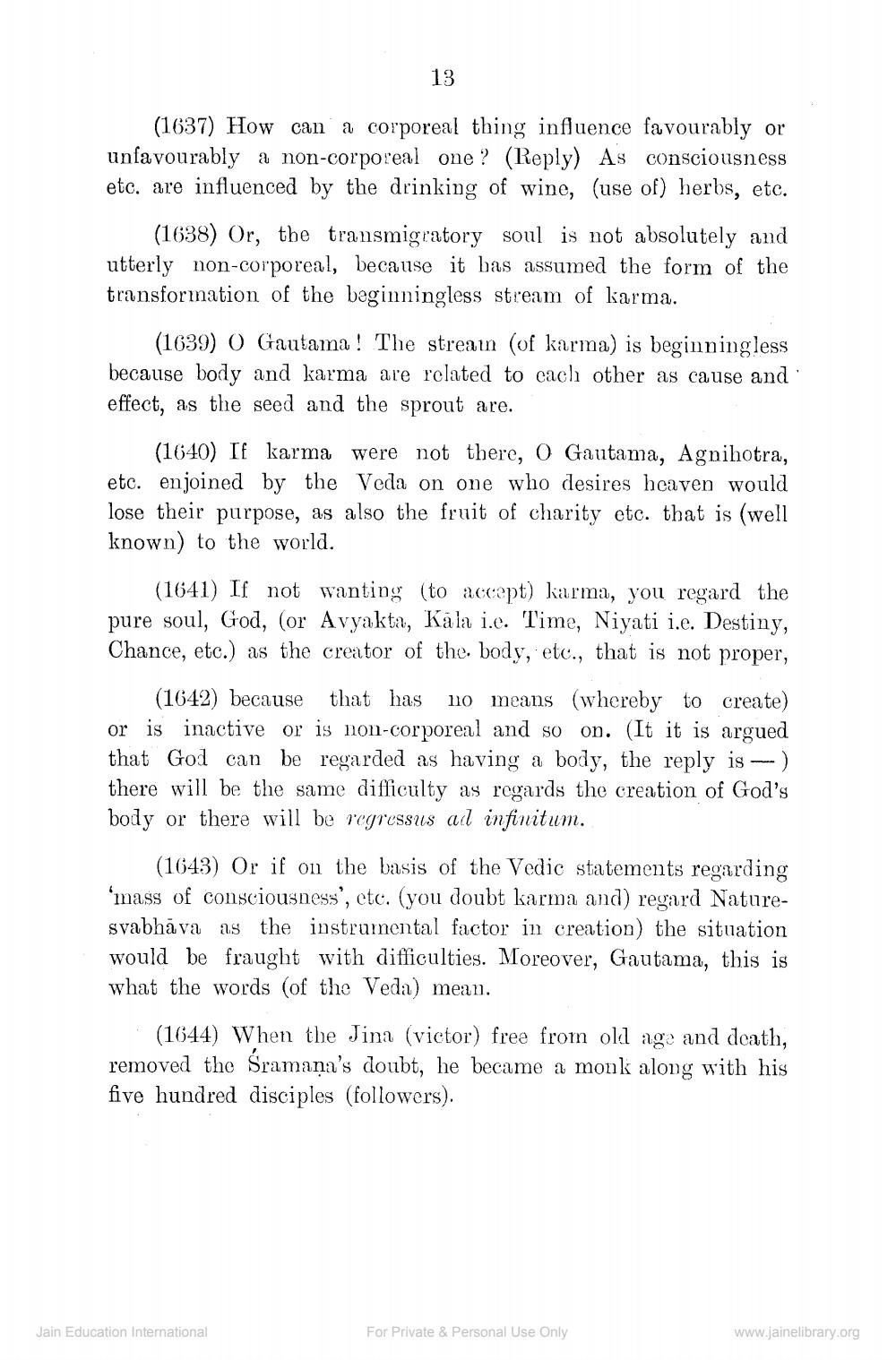________________
13
(1637) How can a corporeal thing influence favourably or unfavourably a non-corporeal one? (Reply) As consciousness etc. are influenced by the drinking of wine, (use of) herbs, etc.
(1638) Or, the transmigratory soul is not absolutely and utterly non-corporeal, because it has assumed the form of the transformation of the beginningless stream of karma.
(1639) O Gautama! The streain (of karma) is beginningless because body and karma are related to each other as cause and effect, as the seed and the sprout are.
(1640) If karma were not there, O Gautama, Agnihotra, etc. enjoined by the Veda on one who desires heaven would lose their purpose, as also the fruit of charity etc. that is (well known) to the world.
(1641) If not wanting (to accept) karma, you regard the pure soul, God, (or Avyakta, Kala i.e. Time, Niyati i.e. Destiny, Chance, etc.) as the creator of the. body, etc., that is not proper,
(1642) because that has 110 means (whereby to create) or is inactive or is non-corporeal and so on. (It it is argued that God can be regarded as having a body, the reply is- -) there will be the same difficulty as regards the creation of God's body or there will be regressus ad infinitum.
(1643) Or if on the basis of the Vedic statements regarding 'mass of consciousness', etc. (you doubt karma and) regard Naturesvabhava as the instrumental factor in creation) the situation would be fraught with difficulties. Moreover, Gautama, this is what the words (of the Veda) mean.
(1644) When the Jina (victor) free from old age and death, removed the Śramana's doubt, he became a monk along with his five hundred disciples (followers).
Jain Education International
For Private & Personal Use Only
www.jainelibrary.org




